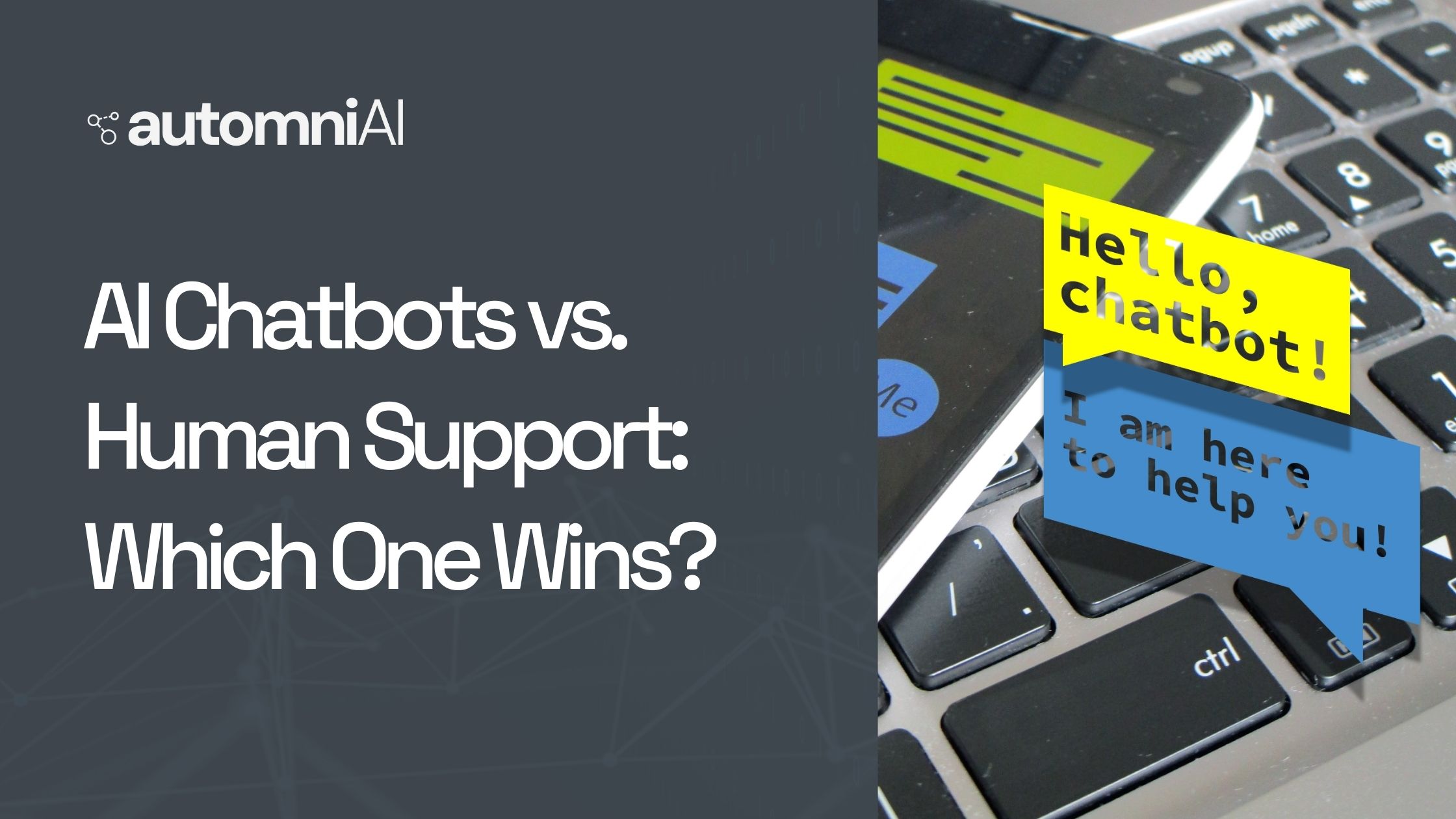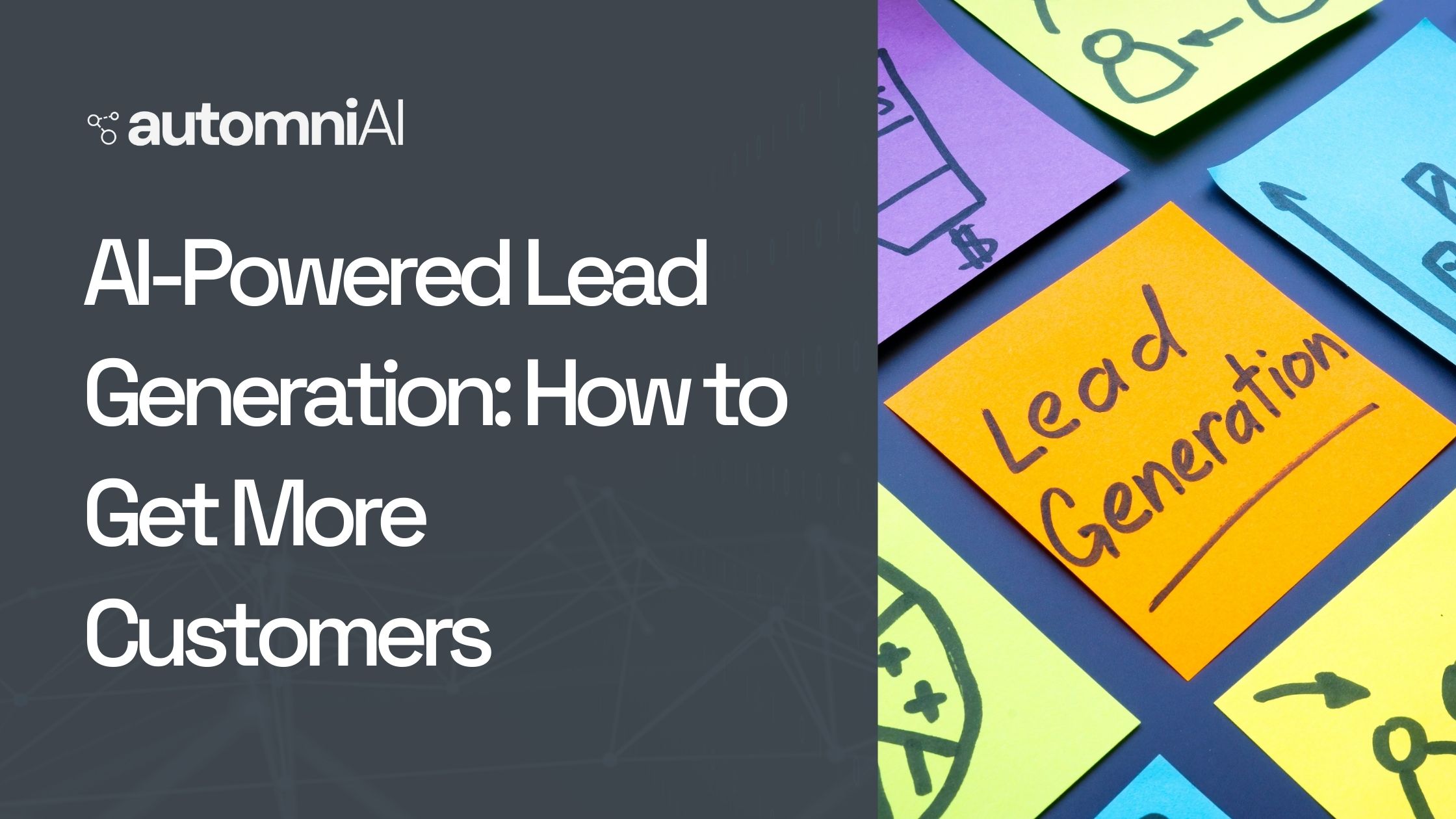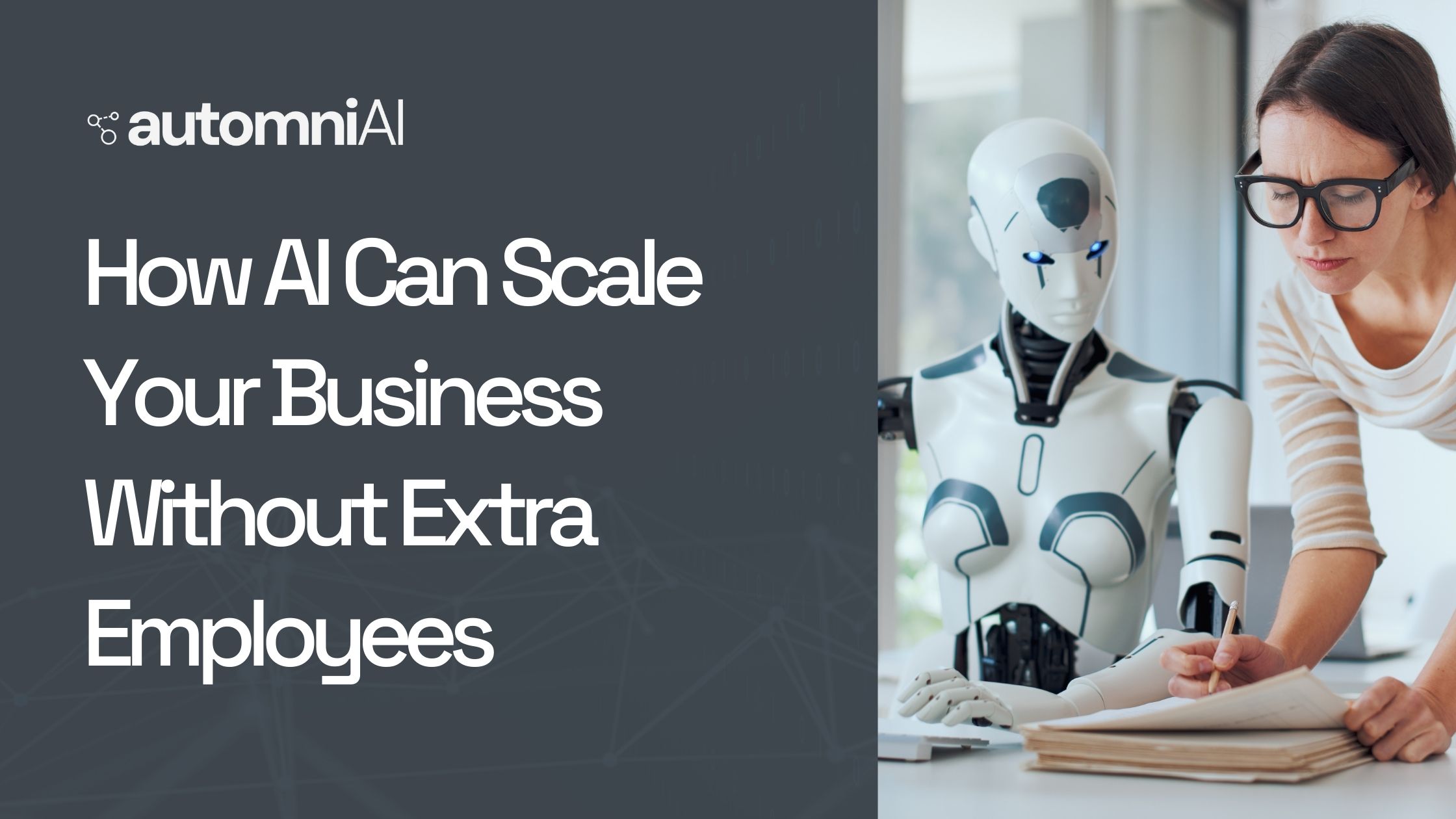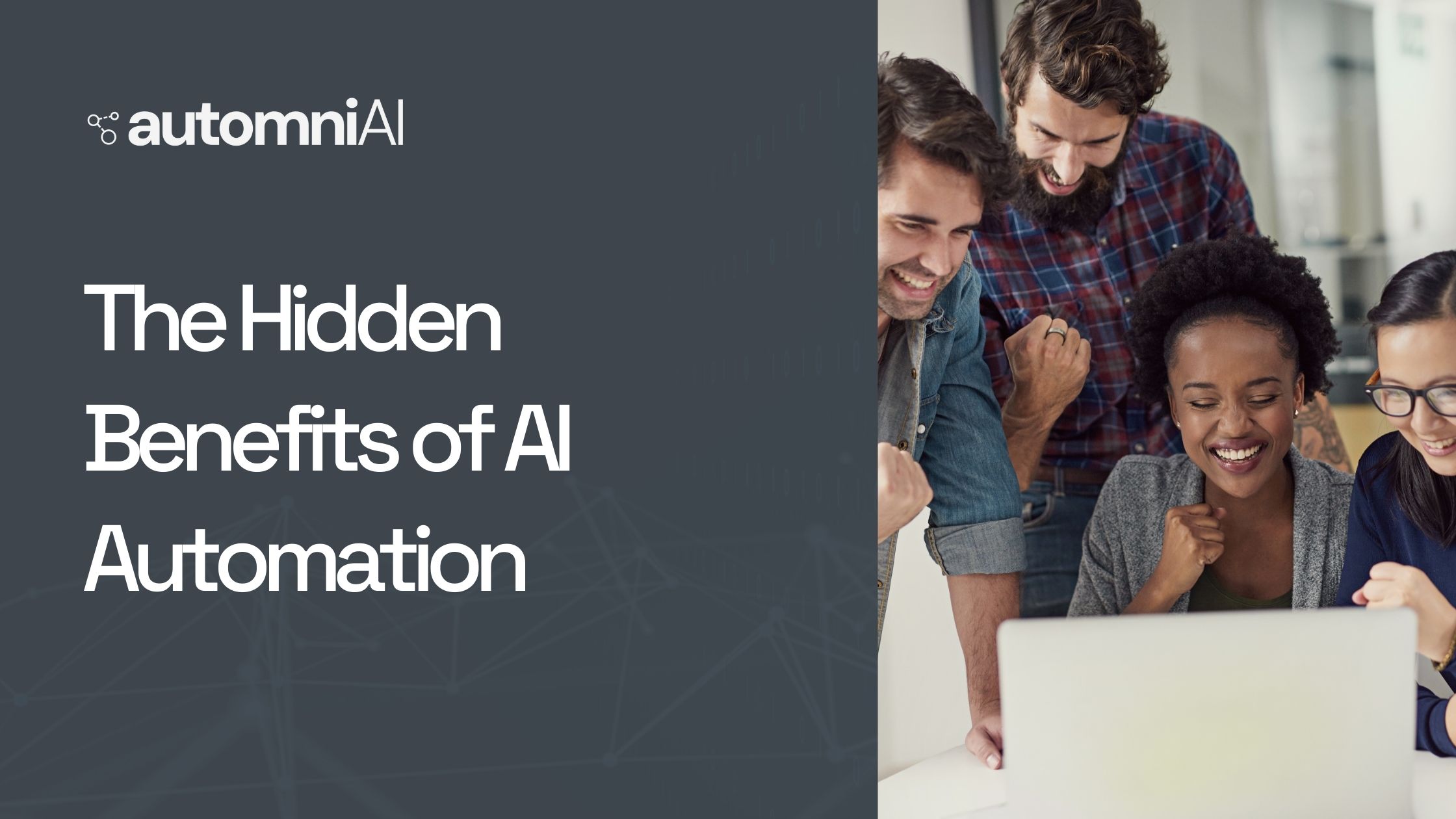In today’s digital world, businesses need more than just traditional marketing to attract and retain…

AI Chatbots vs. Human Support: Which One Wins?
1. Introduction
Customer support has come a long way from the days of long hold times and frustrating automated phone menus. Today, businesses rely on both AI chatbots and human support agents to assist customers efficiently. AI chatbots offer speed and automation, while human support brings empathy and personalized solutions. But which one truly wins in the battle for superior customer service? Let’s dive deep into the pros, cons, and real-world applications of both.
2. What Are AI Chatbots?
AI chatbots are automated programs designed to interact with users through text or voice. They use Natural Language Processing (NLP) and machine learning to understand and respond to customer queries.
Types of AI Chatbots:
- Rule-Based Chatbots – Follow pre-set rules and respond based on keyword triggers.
- AI-Powered Chatbots – Use machine learning to analyze conversations and provide intelligent responses.
Examples of AI Chatbots:
- ChatGPT – Provides conversational AI support.
- Drift – A chatbot for sales and marketing automation.
- LivePerson – AI-driven customer engagement platform.
AI chatbots are increasingly used in customer service, but can they fully replace human agents?
3. Understanding Human Support
Human customer support involves real people interacting with customers via phone, email, or live chat. This type of support is crucial for handling complex issues that require emotional intelligence.
Common Human Support Channels:
- Phone Support – Direct conversations for problem-solving.
- Email Support – Formal, detailed responses for technical issues.
- Live Chat – Quick, text-based communication with human agents.
While AI chatbots handle simple inquiries efficiently, human agents provide a level of understanding that technology can’t replicate—yet.
4. AI Chatbots: Pros and Cons
Advantages of AI Chatbots:
✅ Available 24/7 – They never need breaks, vacations, or sleep.
✅ Instant Responses – No wait times, unlike human agents.
✅ Cost-Effective – Reduces labor costs for businesses.
✅ Scalable – Can handle thousands of queries simultaneously.
Disadvantages of AI Chatbots:
❌ Lacks Emotional Intelligence – Struggles to understand tone, sarcasm, or complex emotions.
❌ Limited Understanding – May misinterpret queries, leading to frustration.
❌ Potential for Errors – Can provide incorrect or irrelevant responses.
AI chatbots work best for routine questions but often struggle with nuanced customer concerns.
5. Human Support: Pros and Cons
Advantages of Human Support:
✅ Personalized Experience – Tailored responses based on customer needs.
✅ Emotional Intelligence – Agents can detect frustration and adapt their responses.
✅ Better Problem-Solving – Humans can handle unique, complex cases effectively.
Disadvantages of Human Support:
❌ Expensive – Hiring and training support teams is costly.
❌ Limited Availability – Restricted by working hours and time zones.
❌ Slower Response Time – Customers may experience long wait times.
Despite its drawbacks, human support remains essential for industries where empathy and judgment are key.
6. AI Chatbots vs. Human Support: Key Differences
| Feature | AI Chatbots | Human Support |
|---|---|---|
| Response Time | Instant | Varies (minutes to hours) |
| Availability | 24/7 | Limited hours |
| Emotional Intelligence | Lacks empathy | High emotional understanding |
| Cost | Low | High |
| Accuracy in Complex Issues | Limited | High |
While AI chatbots win in speed and cost, human agents excel in emotional intelligence and problem-solving.
7. Industries Where AI Chatbots Excel
AI chatbots have gained popularity in various industries where speed, automation, and efficiency are key. Businesses that deal with high volumes of customer queries find AI chatbots particularly beneficial.
1. E-commerce and Retail
- Handles order tracking, refunds, and FAQs instantly.
- Recommends products based on customer preferences.
- Reduces the need for human agents in repetitive tasks.
2. Banking and Finance
- Provides quick account balance updates and transaction details.
- Detects fraudulent activities through AI monitoring.
- Automates loan application processes and financial advice.
3. Healthcare and Telemedicine
- Schedules appointments without human intervention.
- Answers basic health queries and symptoms.
- Supports mental health services with AI-driven chat.
Chatbots work best in these industries because they streamline customer service while maintaining accuracy in handling frequent inquiries.
8. Industries Where Human Support Is Essential
While AI chatbots offer speed, some industries rely heavily on human support for their sensitive, complex, or emotionally charged interactions.
1. Healthcare and Mental Health Services
- Patients need human empathy for emotional support.
- Doctors and therapists provide accurate diagnosis and treatment.
- AI chatbots can assist but cannot replace human expertise.
2. Legal and Financial Advisory
- Lawyers and financial advisors deal with sensitive, complex cases.
- AI chatbots cannot fully understand legal nuances.
- Clients prefer human interaction when handling legal matters.
3. Luxury and Premium Customer Services
- High-end brands focus on personal experiences.
- Luxury clients expect tailored assistance.
- Human agents build strong relationships with customers.
These industries require human interaction because trust, empathy, and expertise cannot be replicated by AI chatbots alone.
9. The Role of AI and Humans in Hybrid Support
Many businesses are now combining AI chatbots with human support to create a hybrid model that offers the best of both worlds.
How Hybrid Support Works:
- AI chatbots handle basic inquiries and frequently asked questions.
- Human agents step in when the chatbot cannot resolve the issue.
- AI assists human agents by providing preliminary customer information.
Benefits of Hybrid Customer Support:
✅ Reduces workload for human agents.
✅ Provides faster responses while ensuring quality service.
✅ Balances automation with human empathy.
Examples of Successful Hybrid Models:
- Amazon – Uses AI chatbots for tracking orders but allows customers to escalate issues to human agents.
- Banking Apps – AI chatbots answer general questions, while human advisors assist with loans and investments.
- Healthcare Portals – Chatbots handle appointment scheduling, and doctors consult patients directly.
This hybrid approach ensures efficiency without compromising customer satisfaction.
10. Customer Preferences: AI vs. Human Support
What do customers actually prefer—AI chatbots or human support? Studies reveal interesting insights into customer behavior.
Survey and Statistics on Customer Preferences
- 63% of consumers prefer AI chatbots for basic support due to their speed.
- 74% of customers prefer human agents for complex issues because of emotional intelligence.
- 40% of millennials and Gen Z users are comfortable using chatbots, while older generations prefer human interactions.
Factors That Influence Customer Choice
- Urgency – People prefer chatbots for quick responses.
- Complexity – Human agents are chosen for difficult problems.
- Trust – Customers trust humans more for sensitive matters.
While AI chatbots are improving, human agents remain the preferred choice for complex or emotional situations.
11. Cost Analysis: AI vs. Human Support
Businesses must consider costs when choosing between AI chatbots and human support.
| Cost Factor | AI Chatbots | Human Support |
|---|---|---|
| Setup Cost | High (initial development) | Low (hiring process) |
| Maintenance | Low | High (salaries, training) |
| Scalability | High (handles thousands of queries) | Limited (requires more agents) |
| Long-Term Savings | High | Low |
Return on Investment (ROI) Comparison
- AI chatbots have higher long-term savings but require significant setup costs.
- Human agents are costly but necessary for complex interactions.
- Hybrid models optimize both cost and efficiency.
Businesses looking to cut costs without sacrificing customer experience often choose a combination of AI chatbots and human support.
12. The Future of AI in Customer Support
AI technology continues to evolve, promising exciting advancements in customer service.
Upcoming AI Advancements:
🚀 Emotional AI – Chatbots will detect emotions and adjust responses accordingly.
🤖 Voice AI – More advanced voice-based assistants like Alexa and Google Assistant.
🔍 Improved NLP – Chatbots will better understand complex queries.
Will AI Replace Human Support Completely?
Not likely! While AI will improve, human support will always be needed for:
- Emotional interactions (counseling, medical, legal).
- Critical problem-solving (customized business solutions).
- Building relationships with customers.
The future is a collaboration between AI chatbots and human agents.
13. Case Studies: Success Stories and Failures
Companies That Thrived with AI Chatbots:
- Domino’s Pizza – Automated pizza ordering through AI chatbots.
- Sephora – Chatbots offer personalized beauty recommendations.
- H&M – AI-driven fashion assistants suggest outfits.
Businesses That Struggled with AI Implementation:
- Banking Chatbots with Security Issues – AI chatbots have made mistakes in verifying customer identities.
- E-commerce Chatbots with Poor NLP – Some chatbots fail to understand customer complaints properly.
Lessons Learned:
✅ AI chatbots need continuous training to be effective.
✅ Businesses should always provide a human support option for complex queries.
14. Ethical Concerns and Challenges
Despite their benefits, AI chatbots come with challenges and ethical concerns.
1. AI Bias in Customer Support
- AI models can inherit biases from training data.
- Some chatbots may unintentionally discriminate against certain customer groups.
2. Privacy and Data Security Issues
- AI chatbots collect large amounts of user data.
- Businesses must ensure secure data handling to protect customers.
3. Ethical Dilemmas in AI Interactions
- Should AI disclose that it’s a bot?
- How do we ensure chatbots provide fair and unbiased responses?
Businesses must address these ethical challenges to maintain customer trust.
15. Conclusion: Which One Wins?
So, who wins the battle—AI chatbots or human support? The answer isn’t simple.
AI chatbots win in:
✅ Speed and efficiency.
✅ Cost-effectiveness for businesses.
✅ Handling repetitive, high-volume queries.
Human support wins in:
✅ Emotional intelligence and personalized experiences.
✅ Solving complex issues with critical thinking.
✅ Building trust and long-term relationships.
💡 Final Verdict: The best customer support isn’t about choosing AI over humans—it’s about balancing both to create a seamless and efficient experience.




Comments (0)